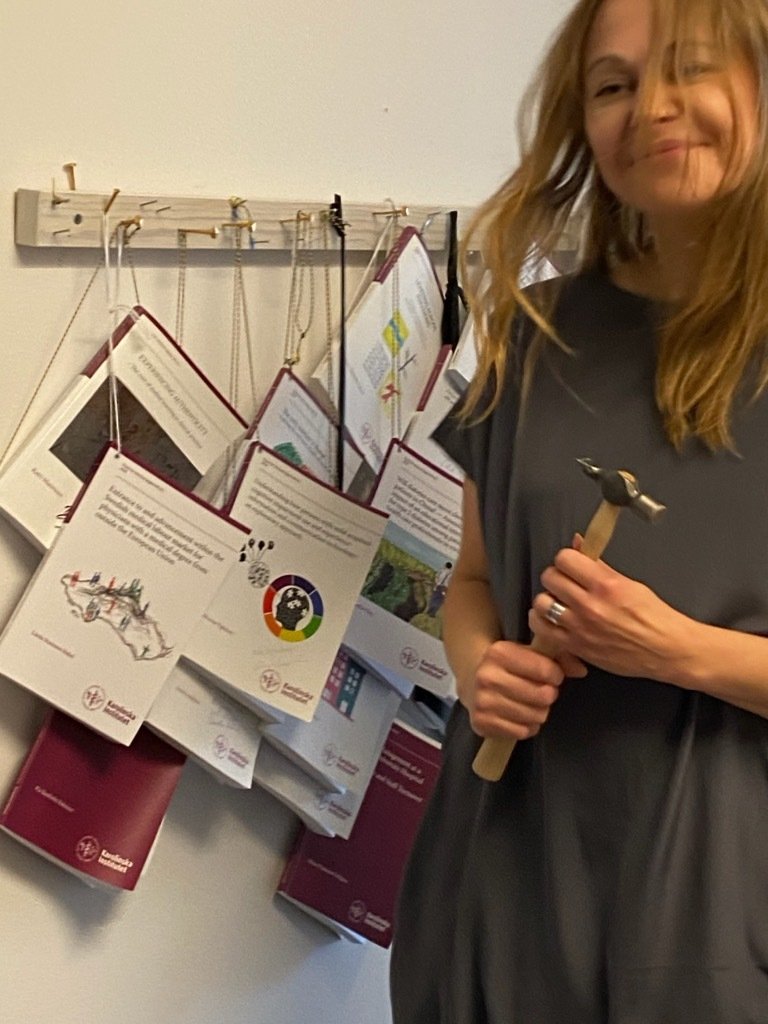Linda Sturesson Stabel, former doctoral student in Lifelong Learning in Health Care Contexts (LLiHCC)
Linda Sturesson Stabel defended her thesis "Entrance to and advancement within the Swedish medical labour market for physicians with a medical degree from outside the European Union" in record time. We meet with her to talk about her research and future plans.

Your thesis is about the obstacles physicians with medical degrees from countries outside the EU/EEA are facing. Can you tell us more?
"It is about physicians with medical degrees from countries outside the EU/EEA and their entrance to and advancement within the Swedish medical labour market. The study participants had participated in a complementary programme for physicians", says Linda Sturesson Stabel who defended her thesis on 23 October 2020.
What are the most important results?
"There are several obstacles for doctors that relate to a national level and to an organizational level, and structural aspects that can make the entrance to and the advancement difficult. However, physicians still have agency within the given set of possibilities. There are facilitating aspects and they can use different strategies, for example developing the language, working in the Swedish health care context before they have obtained their Swedish medical license as for example assistant nurses. This in order to develop experience of the Swedish medical context, develop the language, and develop contacts. Contacts often led to the first work after the complementary programme, of which several contacts were developed during the complementary programme.
A result was also that older physicians more often failed at the AT-test then younger test participants. But, the complementary programme reduced this negative age effect for participants who were 45 years or older compared to those who had not participated in the programme. Further, more than half of the respondents had specialized in general medicine. Overall, it can be stated that many different aspects interact when it comes to the physicians' choices and that these relate to both private life and working life.
The results in the thesis are discussed with the theoretical concepts social field, symbolic capital and doxa (developed by the sociologist Pierre Bourdieu). The results are also discussed in relation to motivation, more specifically to the self-determination theory."
How can this knowledge contribute to improving people’s health?
"By identifying obstacles and structural systems, it is possible to counteract these and thus improve the conditions for migrant physicians."
What do you like to do when you are not studying/doing research?
"I like to write and debuted with a novel in 2019: Diskvalificering av det positiva. Right now I am writing two new scripts. Otherwise I enjoy to watch people, hanging out with my loved ones, playing cards and solving crosswords and jig saw puzzles. The pandemic time has limited me in other things that I like to do in my spare time: exercise at Friskis & Svettis about four times a week, go to concerts and theaters and hang out with friends, and organize social gatherings such as parties. I look forward to returning to these activities as these increase my well-being and keeps insanity away ;-)."
What are your plans for the future?
"In mid-November, I started a research position at Stockholm University where I explore specialist physicians' continued/lifelong learning. This position will end in the autumn of 2021 and after that the plan is for me to return to my research group at LIME."
